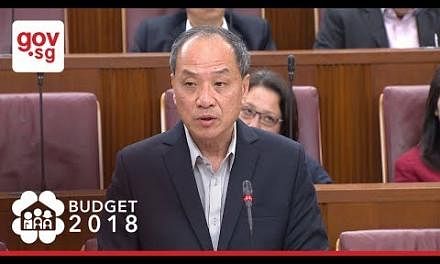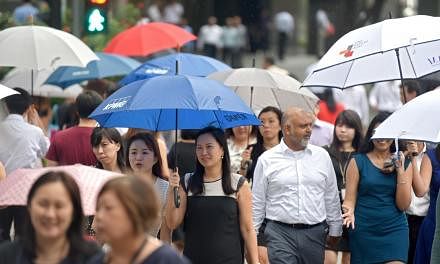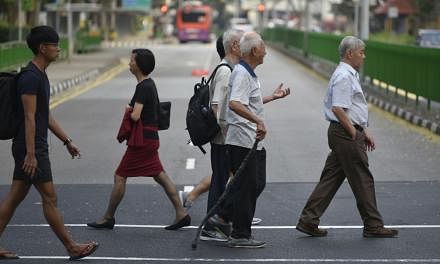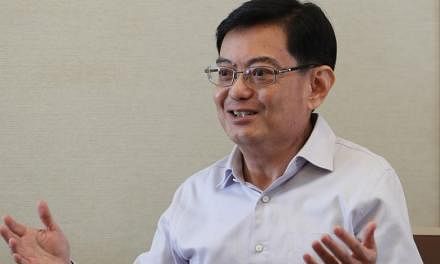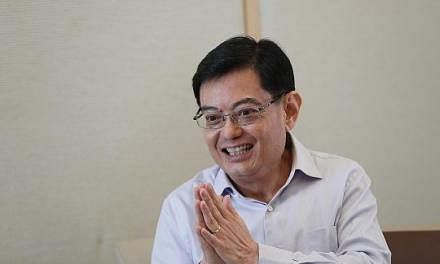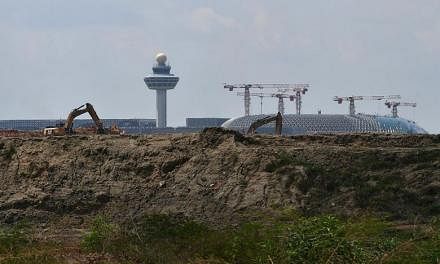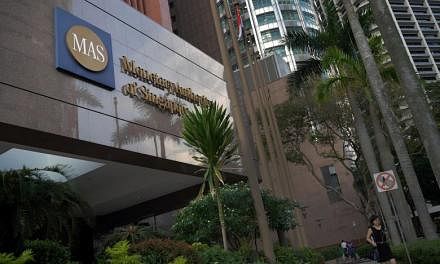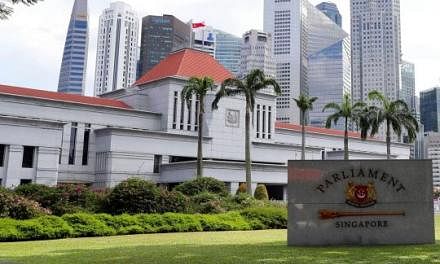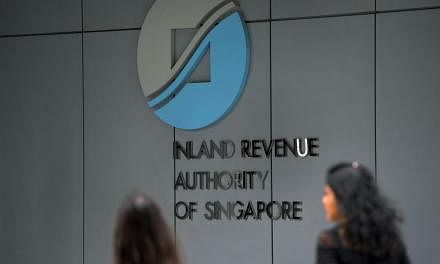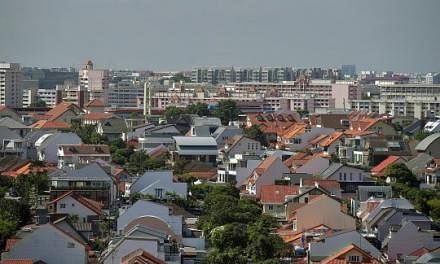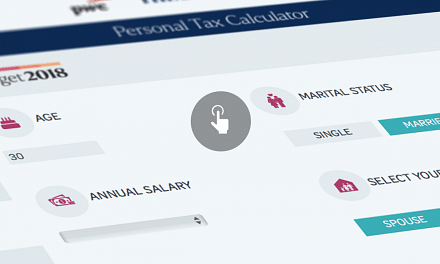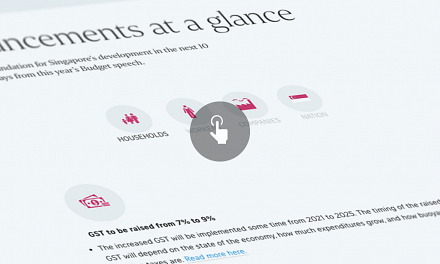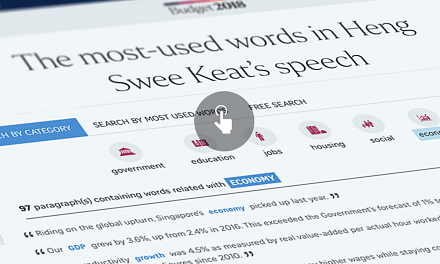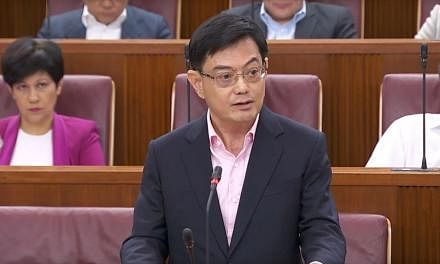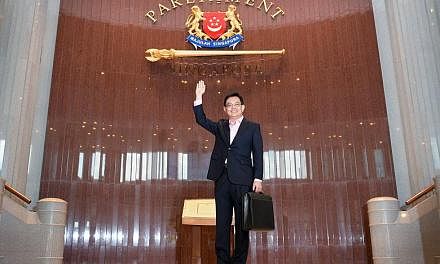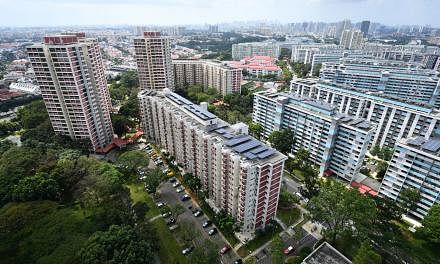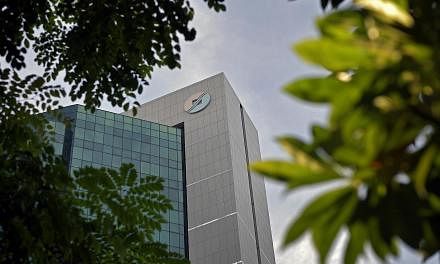This could have been a pure sugar Budget with its huge surplus and SG Bonus for all adult Singaporeans. Instead, Finance Minister Heng Swee Keat coated the sugar with a strong lacing of lemon.
The goods and services tax (GST) will be raised from 7 per cent to 9 per cent "sometime in the future from 2021 to 2025". Some analysts had forecast a hike to 10 per cent over two years, so the impending hike is gentler and slower than expected. But it still carries quite a sting.
The delay in introducing the GST hike might be due to the unexpected injection of $4.6 billion in Statutory Board contributions mainly from the Monetary Authority of Singapore's (MAS) net profit, propelling the Budget into a healthy surplus of $9.6 billion when $1.91 billion was forecast.
The headline figures will cause many Singaporeans to ask: Why raise GST when Singapore's Budget nearly always ends with a surplus?
The short answer is that long-term spending will go up, and more tax revenue sources need to be found.
The extra funds from MAS or the higher-than-expected revenue from stamp duties this year cannot be relied on always. A more permanent way to raise taxes has to be found - and the GST, currently at a relatively low 7 per cent, is a natural target.
Meanwhile, Singapore's people and infrastructure are both ageing, and spending needs are rising. Healthcare spending will overtake education in the next decade. It has already more than doubled since FY2011, to $10.2 billion in FY2018.
Singapore projects healthcare spending to rise from 2.2 per cent to 3 per cent of gross domestic product over the next decade. Where will that extra 0.8 percentage points of GDP come from? In part from the GST hike, expected to raise revenue by 0.7 per cent of GDP.
In fact, budgeting 3 per cent of GDP on healthcare is low by global standards. I think it is conservative, if Singaporeans want to pay less out of pocket and demand that a bigger share come from the state. Spending may go beyond 3 per cent of GDP - and that money has to be allocated for.
Already, Singapore is spending more than it collects in operating tax revenue each year. The books are balanced by adding half of investment income from past reserves, which raised about $14 billion in recent years. That is more than the contribution from either corporate or personal income taxes or the GST.
Raising the GST to 9 per cent will add about $3 billion to the coffers each year.
Every little bit will help.
The 2018 Budget is fiscally sound, putting the nation on a stronger footing for the future. But it is also politically risky.
Mr Heng, who delivered the Budget with aplomb, is tipped as first among equals in the next 4G, or fourth generation, of political leaders. He has ensured some political wiggle room by having a window for the GST hike.
Still, it takes a confident political leader to announce a major tax hike that may come in three years' time - which will be just after the next election, expected around 2020. People will forget good news three years after an announcement, but the anticipation of pain tends to intensify as the dreaded start date approaches.
On the other hand, in committing to a hike to 9 per cent, the Government is also trying to make things more palatable. It is hard to predict the full political impact, but for now, it is a no-brainer that a GST hike will have a political cost.
That Mr Heng and his colleagues proceeded with the announcement anyway suggests they have confidence in their ability to explain why the move is necessary, as well as fiscal armour to cushion the impact via the usual vouchers and offsets.
Whether voters will buy the sugar-lemon pill remains to be seen. The GST hike will be a litmus test of the bond between the people and a future generation of leaders in the next few years.
The clear commitment to raise the GST suggests a continuation of two aspects of the Singapore political leadership. The first is that the future team of leaders will continue the fiscal prudence of the past, in case anyone doubted it.
The second is that the new team will not duck from unpopular decisions. Some may see the early announcement as indicative of the 4G leaders piggy-backing on the popularity of the current Prime Minister and his Cabinet, and relying on today's leaders to win the ground.
But as Mr Heng is the one to announce the hikes, it is clear that it is a decision he and the future team of leaders will have to carry, not the current Cabinet. By announcing the hikes now, they have guaranteed that the GST will be a dominant issue in the next election.
But the GST hikes and Budget 2018 should not be viewed only through the political lens. More important is the fiscal viewpoint.
As Mr Heng took pains to stress, this year's Budget aims to lay the foundation for the next decade. Raising the GST is part of that move.
The other important innovation also aims to put future Budgets on a firm, and more sustainable, footing. This is the move for statutory boards and government-owned companies to borrow for critical national infrastructure projects and for the Government to guarantee some of those loans.
Statutory boards like HDB have long borrowed or issued bonds for projects, so that alone is not novel. What is different is to guarantee the loans. This will require the concurrence of the elected president and his advisers, as it means committing the Government to use its reserves to guarantee loans that may stretch into decades.
This is a practical measure to smoothen cash flow. An infrastructure project like an airport terminal requires huge sums to be spent upfront, but can generate revenue later.
Rather than spend huge sums to build it and draw down on today's surpluses, the Government allows the agency to borrow from the market, and uses its reserves to guarantee the loan to get lower interest rates. Future revenue from the project, such as an airport terminal, can then be used for interest payments on the loan.
As Mr Heng notes, such a borrowing arrangement will "help distribute the share of funding more equitably across generations". You do not use up today's money to pay for something that will generate revenue in 20 years' time. You borrow today for that long-term project, and use future revenue to pay off the loan.
As Singapore ages, issues of equity and fairness - across income and social groups, and across generations - will become potential causes of conflict. This Budget tries to prepare for that more uncertain future by putting in place two major planks in the fiscal system: A GST hike, and a way to use reserves to facilitate borrowing for long-term infrastructure projects.
Correction note: The article has been updated to reflect the correct amount injected from Statutory Board contributions, mainly the Monetary Authority of Singapore. We are sorry for the error.


